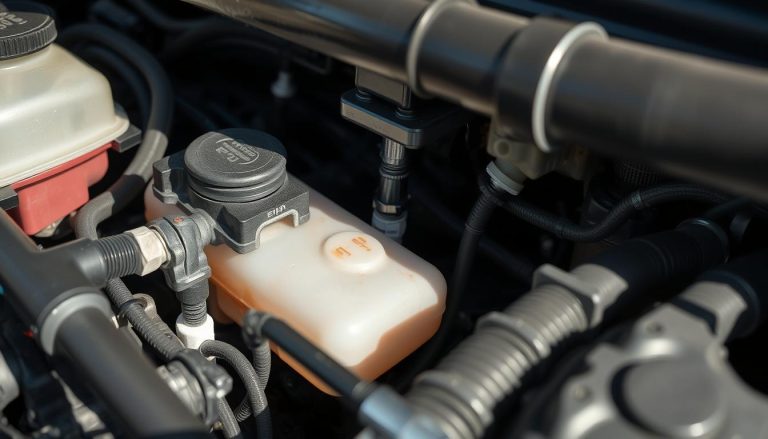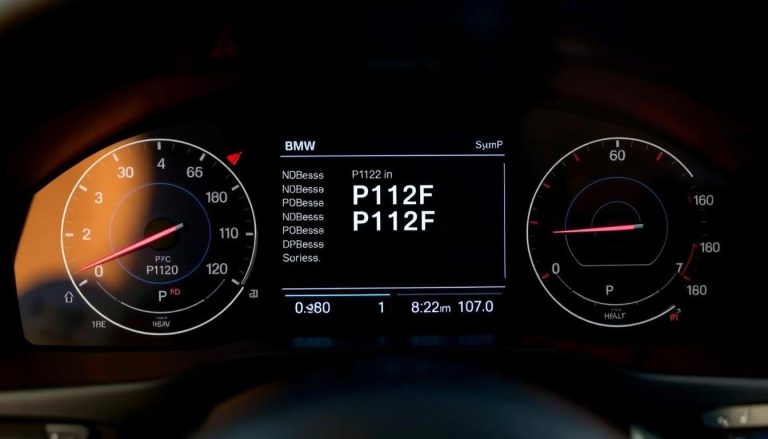If you’ve ever found yourself staring at your fuel gauge, wondering why it seems to fluctuate erratically, you might be dealing with the P0464 code. This little troublemaker can lead to serious confusion about how much gas you really have left in the tank.
Understanding what this code means and how it affects your vehicle is essential for every car owner. Knowing about the P0464 code will empower you to tackle potential issues head-on. Let’s dive into everything you need to know about this fuel level sensor dilemma!
What does the P0464 code mean?
The P0464 code refers to a problem within the fuel level sensor A circuit. It indicates that the vehicle’s onboard diagnostic system has detected an intermittent issue with the signal from this sensor.
Essentially, the fuel level sensor is responsible for measuring how much fuel is in your tank. When it experiences irregularities, such as fluctuations or drops in voltage, it triggers this trouble code.
This code can be triggered by various factors affecting the electrical connections and circuits linked to the fuel level sensor. Understanding its implications helps you recognize potential risks before they escalate into more significant problems with your vehicle’s performance or reliability.
What are the common symptoms of a P0464 code?
A P0464 code often triggers several noticeable symptoms in your vehicle:
- An erratic fuel gauge reading. You might find that it fluctuates or shows incorrect levels, leaving you unsure about how much fuel is actually in the tank.
- Unexpected stalls or poor engine performance. This can happen when the fuel level sensor fails to provide accurate readings, affecting the engine’s operation.
- Decrease in perceived fuel economy
- Decrease in Distance to Empty mileage
- A check engine light illuminating on your dashboard.
- Difficulty starting your vehicle due to inconsistent fuel supply caused by sensor faults.
What are the common causes of a P0464 code?
The P0464 code can arise from several underlying issues :
- A faulty fuel level sensor itself. Over time, wear and tear can lead to inconsistent readings or complete failure.
- Damaged, frayed, or corroded wires can disrupt communication between the sensor and the engine control unit (ECU), resulting in intermittent faults.
- Intermittent short to voltage in the signal circuit to the FLS sensor
- Intermittent short to ground in the signal circuit to the FLS sensor
- Poor connections at plugs and terminals may trigger this code.
What are the diagnostic steps for a P0464 code?
The diagnostic process for a P0464 code begins with connecting an OBD-II scanner to your vehicle’s onboard diagnostics port. This tool retrieves the trouble codes and provides valuable information.
Next, inspect the fuel level sensor wiring and connectors for any signs of damage or corrosion. A visual check can often reveal issues that are causing an intermittent circuit fault.
Then, you’ll want to test the resistance of the fuel level sensor itself. Compare your findings against manufacturer specifications to determine if it’s functioning properly.
If everything looks good thus far, move on to checking for voltage at the connector while the engine is running. Fluctuating voltage readings may indicate a problem elsewhere in the electrical system.
Consider reviewing related systems such as the instrument cluster or ECM (Engine Control Module) for further clues that could point towards underlying issues affecting fuel gauge accuracy.
How serious Is the P0464 Code? Can I continue driving with the P0464 code?
The P0464 code indicates an issue with the fuel level sensor circuit. While it may not cause immediate engine failure, it’s essential to understand its implications.
Driving with this code can lead to inaccurate fuel readings. You might find yourself running out of gas unexpectedly. That can be quite inconvenient and potentially dangerous.
Additionally, a malfunctioning fuel level sensor could mask other underlying issues. Ignoring it might escalate into more severe problems down the road.
If you notice the check engine light illuminated alongside this code, it’s wise to address it sooner rather than later. Taking care of these types of codes can help maintain your vehicle’s overall health and reliability.
While you might be able to drive short distances without noticeable effects, long-term neglect isn’t advisable. Prioritize getting your vehicle inspected for peace of mind on the road.
What are the repair solutions for a P0464 – Fuel Level Sensor A Circuit Intermittent ?
Repairing the P0464 code typically starts with checking the fuel level sensor and its wiring. A damaged or corroded connector can cause intermittent issues, so inspect these components thoroughly.
If the sensor is faulty, replacing it may be necessary. New sensors are available for various makes and models, ensuring compatibility with your vehicle.
Sometimes, a simple reset of the engine control module (ECM) can help clear persistent codes after repairs have been made. Make sure to recheck for any trouble codes once the repair is complete.
In some cases, dealing with an underlying electrical issue may require more in-depth diagnosis. This could involve tracing wires back to their source or testing related circuitry for faults.
Working closely with a qualified mechanic ensures that all potential problems associated with this code are addressed effectively.
How long and How much does it cost to diagnose and repair a P0464 code?
Diagnosing and repairing a P0464 code can vary based on several factors. Typically, the diagnostic process takes about one to two hours at an auto repair shop. Technicians will use specialized equipment to read codes and perform tests.
The cost for diagnosis generally ranges from $75 to $150 depending on the labor rates in your area.
When it comes to repairs, expenses also fluctuate widely. If it’s just a faulty fuel level sensor that needs replacing, you might be looking at around $100 to $300 for parts and labor combined.
However, if there are additional electrical issues or wiring problems involved, costs can increase significantly. Always seek multiple estimates from different mechanics before proceeding with any work. This ensures you’re getting a fair price while addressing the P0464 code effectively.
How can I avoid a P0464 code?
Maintaining your vehicle’s fuel system is key to avoiding the P0464 code. Regularly check for fuel leaks and inspect connections for wear or damage.
Keep an eye on your gas gauge. If it behaves erratically, it might be time to investigate further. Don’t wait until issues escalate.
Routine maintenance should include replacing old sensors as recommended by the manufacturer. Ignoring these guidelines could lead to sensor failure down the line.
Using high-quality fuel can also contribute positively to your vehicle’s performance, ensuring that all components work effectively together.
Staying proactive with diagnostics can catch potential problems before they trigger warning codes like P0464. Invest in a quality OBD-II scanner for early detection and peace of mind while driving.
What happens if you ignore a P0464 code?
Ignoring a P0464 code can lead to significant issues down the line. The fuel level sensor plays a critical role in your vehicle’s operation, and if it’s malfunctioning, you might face erratic fuel readings.
This inconsistency can result in running out of gas unexpectedly or overfilling your tank. Both scenarios present risks on the road, including being stranded or damaging your fuel system.
Additionally, ignoring this code may trigger other related trouble codes. This cascade effect complicates diagnosis and repair efforts later on.
Over time, prolonged neglect could also impact engine performance and efficiency. You might notice decreased mileage as the engine struggles to adapt to inaccurate data from the faulty sensor.
In essence, addressing a P0464 code promptly is essential for maintaining both safety and optimal vehicle function.
Is the P0464 code specific to certain car makes or models?
The P0464 code isn’t limited to one specific make or model. It can appear in various vehicles from different manufacturers. This broad applicability means that many drivers may encounter this issue.
However, certain brands might experience it more frequently due to design choices or fuel system configurations. For example, some domestic and import cars have different wiring setups affecting the fuel level sensor’s performance.
Additionally, older models may show a higher prevalence of the P0464 code due to wear and tear on components over time. It’s essential for car owners to understand their vehicle’s particular quirks when diagnosing issues like these.
While the symptoms remain consistent across models, each car’s repair process could differ slightly based on its unique systems and technologies. Always consult your vehicle’s manual or a professional mechanic for tailored advice related to your specific situation.
What other codes may be related to P0464?
When dealing with the P0464 code, it’s important to recognize that it may not exist in isolation. Various other diagnostic trouble codes (DTCs) can accompany or arise from issues with the fuel level sensor. Commonly related codes include:
– **P0460**: This code indicates a malfunction in the fuel level sensor circuit, which is quite similar to P0464 but generally points to more consistent faults rather than intermittent ones.
– **P0461**: This refers specifically to an issue with the signal sent by the fuel level sensor being “out of range.”
– **P0452**: While not directly related, this code signifies a problem within the evaporative emission control system that can sometimes overlap with fuel gauge issues.
Each of these codes requires careful diagnosis and consideration as part of your vehicle’s broader electrical and sensor systems. If you encounter multiple DTCs like these, addressing them promptly is key to maintaining optimal vehicle performance and preventing further complications down the road.


